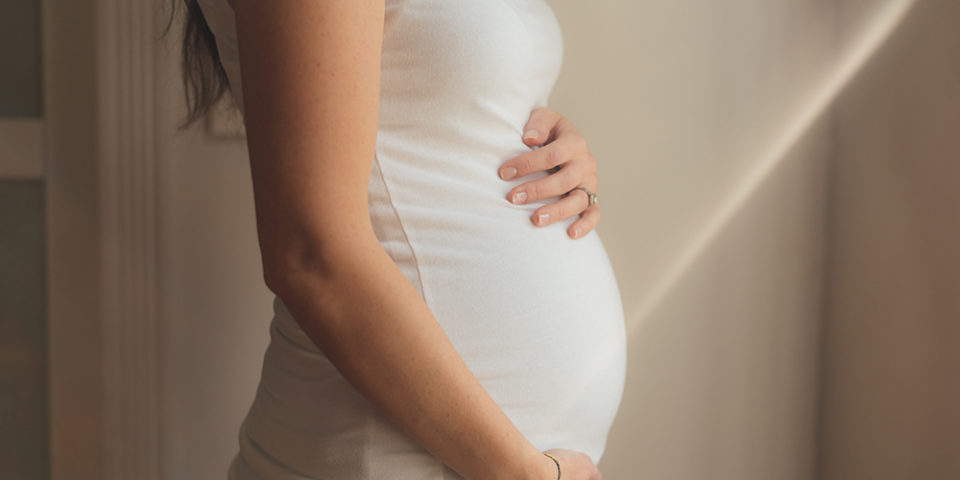Pregnancy and the delta variant: What you can do to protect yourself and your baby
Pregnant women who get COVID-19 are becoming more seriously ill, resulting in complications like preterm birth and even death. Maternal-fetal medicine specialist Kacey Eichelberger, MD, explained why this might be happening and how women can protect themselves.
“Something different appears to be happening right now for pregnant women, which may be related to the delta variant. Sadly, women delivering their babies in the ICU is more common,” she said.
According to the Centers for Disease Control and Prevention (CDC), the delta variant is more severe and more contagious, which is why they are strengthening their recommendation that pregnant women get the COVID-19 vaccine. The America College of Obstetricians and Gynecologists (ACOG) and the Society for Maternal-Fetal Medicine (SMFM) also released a joint statement strongly recommending the vaccine for pregnant women, regardless of their stage of pregnancy.
In the United States, fewer than 25% of pregnant moms and only 10% of women under 25 have been vaccinated. Dr. Eichelberger said roughly 90% of hospitalized patients with COVID-19 are unvaccinated.
Why are pregnant women more vulnerable?
When pregnant, a woman’s immunity decreases so her body doesn’t attack the baby. Because of that, pregnant women are at higher risk of getting the infection and passing it on to the baby, as well as to anybody else. COVID-19 is making pregnant and postpartum patients critically ill.
“Women are presenting with more aggressive liver failure and blood abnormalities,” said Dr. Eichelberger. “They’re sicker, requiring more blood products and more ICU placement. They are having to get intubated at a much faster pace.”
How can pregnant women protect themselves and their babies from COVID-19?
Dr. Eichelberger said there are two paths to avoiding severe COVID-19 disease during pregnancy.
- Vaccination. You can get vaccinated at any point before or during your pregnancy. Getting vaccinated also protects your baby because the antibodies you produce are passed to your baby as early as 16 days after your vaccination. It’s important to remember that the vaccine doesn’t cross your placenta, just your antibodies. These antibodies provide protection to your baby in case they are exposed to the virus. The earlier you get the vaccine in pregnancy, the more antibody response you’ll have.
- Cocooning. If you choose not to get a COVID-19 vaccine right now, then your second path to staying safe is cocooning. Stay at home and do not go out. Cocooning is social distancing in an even more intentional way. Wear a mask anywhere you have to go and assume that everyone around you has a potential viral infection that could make you very sick. Don’t go out of your home unless you must.
Is the COVID-19 vaccine safe for pregnant women?
The CDC reviewed a compilation of 2,500 women in its V-safe (after vaccination) health registry who were either not pregnant or early pregnant when they received their first vaccine and now are pregnant or have delivered. There is no difference in the miscarriage rate between those who are vaccinated and those who are not vaccinated.
“With that data coming out of the CDC, there is a unified recommendation from all groups that pregnant women should receive the vaccine. This is in keeping with what the American College of Obstetricians and Gynecologists had been recommending,” said Dr. Eichelberger.
According to the CDC, the COVID-19 vaccination is safe for:
- Pregnant women
- Breastfeeding women
- Women who are considering pregnancy
Why might pregnant women hesitate to be vaccinated?
Dr. Eichelberger said misinformation is the biggest reason. “It feels like the misinformation campaign against this vaccine is stronger than anything I’ve had to contend with in my career,” she said.
Here are common reasons she and her colleagues are hearing:
- “Story of one.” Hearing a story about what happened to one person can feel very powerful. For example, “I heard a story about one person who had this happen,” or “I’m in a Facebook mom group, and I heard that … .” “We have to remember that we rarely have all of the important details of those stories, and there are likely parts of that story that are unique to that person,” said Dr. Eichelberger. “Instead of relying on individual stories, we recommend relying on the advice from national experts, including the CDC, ACOG, SMFM, and American Society of Reproductive Medicine.”
- Concern about the vaccine entering the placenta. The vaccine is injected into the deltoid muscle in your arm and degenerates in the cytoplasm of those muscle cells within days. It does not get across the placenta.
- Concern that the vaccine is a live virus vaccine. It is not a live virus vaccine. It’s not even an inactivated or dead virus vaccine. It is in a totally different category.
- Concern that the vaccine increases miscarriage risk. CDC data shows no change in miscarriage risk in a population that exceeds 2,500 women.
- Concern about fertility. There’s a myth that the vaccine produces antibodies that would attack a future placenta. This is not true. There are many studies now to refute this rumor. A recent study was published out of Northwestern in Chicago; investigators performed microscopic evaluation of 84 placentas of women who received the COVID vaccine compared to more than 100 women who had not. There was no difference between the placentas.
- Concern about increased risk of preterm labor. The vaccine does not cause this problem but being infected with COVID-19 does. Patients with COVID also have an increased risk of stillbirth, abruption and preeclampsia.
- The vaccine was produced too fast to be safe. When the whole world is working on an answer to a problem, sometimes we get faster answers, especially when there’s funding for it.
- Avoidance. Getting a vaccine feels like a choice, and moms have a terrifying fear of making the wrong decision for their children. But hoping COVID-19 just goes away isn’t the best response, because no decision is, in itself, a decision.
What should you do if you’re unsure about getting the vaccine?
Dr. Eichelberger recommended talking to your healthcare provider. “Tell us your fears and concerns so we can discuss them and have an evidence based informed decision. We want the same thing you do, which is optimal health for you and your little one. Whether or not you choose to get vaccinated, we will treat you with the same care, compassion and respect.”
Have questions about the COVID-19 vaccine?
Find answers to frequently asked questions about the COVID-19 vaccine, including how to get the shot.


